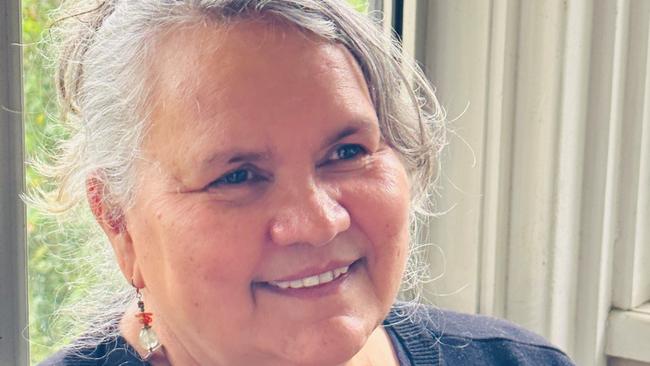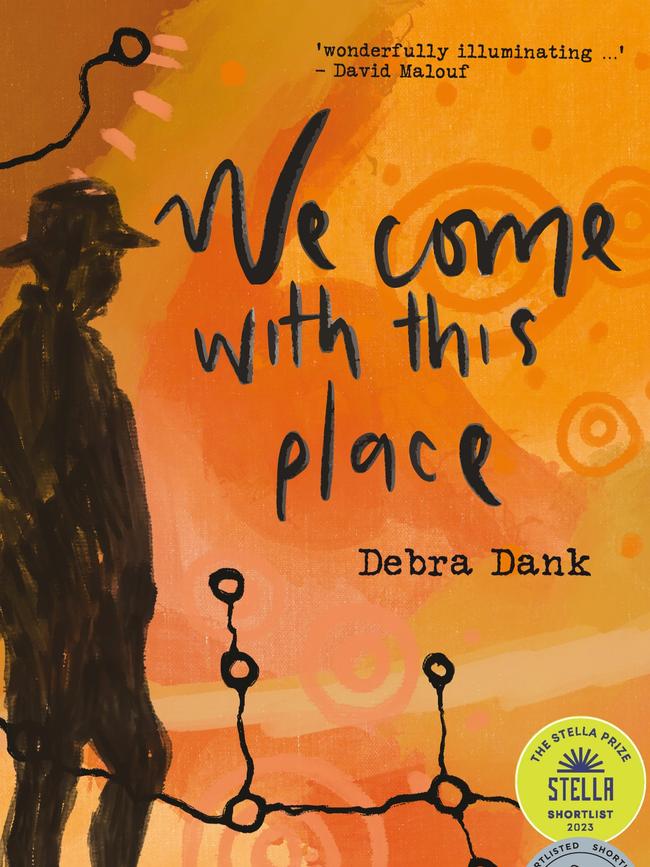What does it mean to be on country? Indigenous writer Debra Dank explains
Indigenous writer Debra Danks explains the concept in her new book, described as a gift to all Australians.

My friend knew I was reviewing this book and asked, “Does it really deserve to be winning everything - it’s winning everything!”
She was right: Debra Dank’s book We Come With This Place (Echo Publishing) won a record-breaking four awards at the NSW Premier’s Literary Awards including Book of the Year, and the prizes for non-fiction, new writing and Indigenous writing. It has also just won the Australian Literature Society’s Gold Medal for an outstanding work. The judges described it as “a generous, moving gift to all Australians.”
This book is deserving of the accolades. It’s an unconventional book, written out of an Aboriginal cultural base and it is truly groundbreaking writing. This book introduces the reader to a particular cultural pathway through a writing style that you might describe as poetic, or lyrical. It is more than this. I’ve not yet found the words to describe Dank’s writing style.
Dank is authentic, humble and quietly proud at the same time. She knows who she is, truly connected and grounded. I suspect Dank is one of those people who it just does you good to be around, that do exist in special contexts.
Her writing is a profound expression of culture and importantly a new way to access cultural knowledge. She is adamant this is not a story about her but a story about Gudanji and country “being, becoming and continuing”. This is country as an Aboriginal cultural concept. She speaks as part of the landscape, the species, water “those kin who are more than human”. She tells the stories that have been kept in country, that are accessed when still and receptive. Her book is an expression of Gudanji sensibility, a way of understanding the world in terms of relationships, not the least of which is to the natural world. When Dank is on country her body is awake to every small breeze, birdcall and even stillness. She takes you there. I could almost feel the warm, soft sand between my toes.
Her book is a series of stories, some of which are very short. They are not in chronological order because Dank is not telling stories of the past, her stories are ever-present.
I am fascinated by the way in which she treats the Gudanji peoples’ history as an expression of Aboriginal cultural approaches to the past. She does not resile from the truth of the colonial aggression. At the same time she treats it seemingly lightly in comparison to western forms of history making. History came to Gudanji bringing huge trials and suffering, brutality, terror and death. Gudanji had to navigate inexplicable relationships with people who obviously have no Law. Dank takes us there. However, history does not dominate her family story. They are not trapped by hate and resentment, it is culture that defines them.

It’s some years since I read Tony Roberts’s Frontier Justice: A History of the Gulf Country to 1900 (2005) an exemplary history, meticulously researched, that made for harrowing and distressing reading. The truth is that the Gulf Country erupted into outright war by the mid to late 1880s and the Aboriginal weapons were no match for the Snider and Martini-Henry rifles carried by men on horseback. Two neighbouring groups to the Gudanji, the Binbingka and the Wilangarra, were massacred and extinct by the early 1900s.
Dank is not counting the number of people who died from violence. There are no footnotes, no debate. She is not looking to blame or repeat the ghastly history. She acknowledges the horror and the fear that can still be felt in the country. Dank’s peoples’ history is in the country now, it is incorporated into the stories of who the Gudanji now are, and they persist.
Dank’s people have weathered their history, dealt with it and are now free of it, to the extent that it cannot hold them back from having a good life. Why? Because culture is supreme. Culture is about relationships – respectfully understanding, honouring and building relationships above all other considerations.
Dank explains that her children chose to have the three lines depicting the sacred beginning of the Gudanji people (when the water women came onto land, as it appears in their sacred cave) etched in their bodies. They chose tattoos she says, not as a “sentimental display of reminiscence”, but as a way to honour the grandmothers’ Law when they were not prepared for the more testing cicatrix. Times change! Cultures adapt and flow. Her children have the tattoo because they are Gudanji. This book, too, is no “sentimental display of reminiscence” it is an expression of a living culture. It is Gudanji.
Victoria Grieves Williams is Aboriginal, Warraimaay from the midnorth coast of NSW, and an historian.
We Come with this Place


